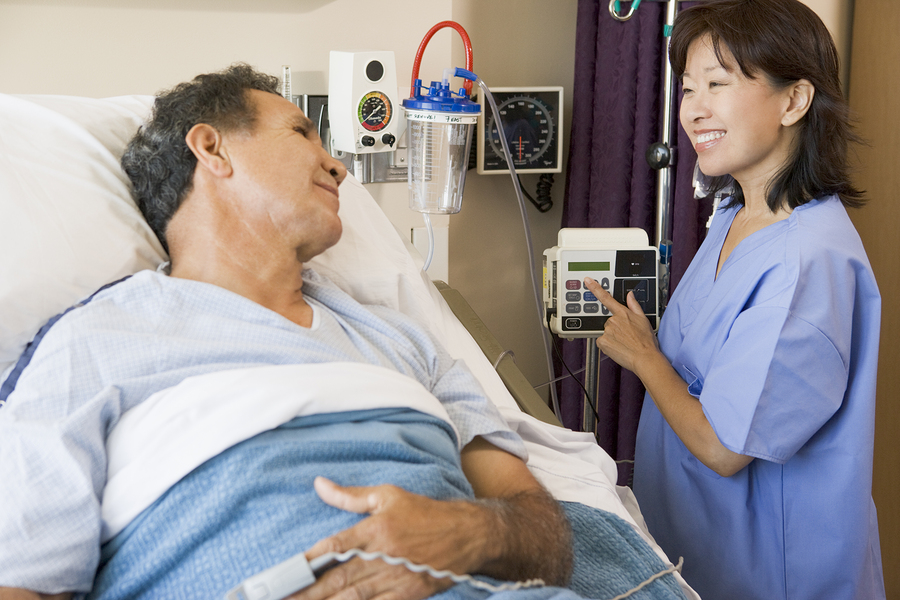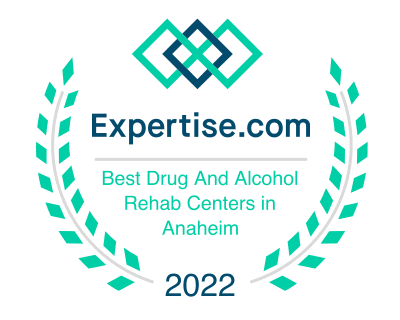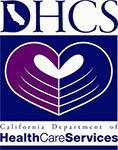Comparing drug treatment options starts with understanding the difference between them. Once you know the difference between medical detoxification, rehab, peer support and other opiate addiction treatment options, you can determine which option will be right for you or your loved one.
The average person often uses drug treatment center terms interchangeably — even some treatment programs do — but opioid treatment centers vary greatly in what they can and can’t provide. Learn the differences so that you can find a drug or alcohol treatment that meets your needs.
First, Opiate Dependence Is Not the Same as Opiate Addiction
Physical dependence on a substance is a biological condition that requires medical treatment. Addiction, however, is a behavioral response to physical dependence and an underlying cause or trigger, such as trauma or a mental health issue. It typically requires subsequent treatment such as therapy.
What Is Opiate Addiction Treatment?
Successful opiate addiction treatment programs use an all-encompassing, patient-focused approach, which can decrease the likelihood of a relapse. By understanding the individual behind the opioid use disorder, the treating professional can adequately address the chemical dependence and the root cause of the addiction, not just the symptoms.
An effective course of treatment for opioid or alcohol dependence and addiction starts with addressing the physical dependence medically first. Once physicians remove the physical dependence then a patient can pursue psychotherapy, behavioral therapy or other forms of therapy to improve his or her mental health.
How Medical Opiate Addiction Treatment Is Different from Rehabs and Peer Support
Many drug treatment centers only focus on part of a person’s condition, such as just the behavioral component. Some opiate addiction treatment programs partner with other specialists to cover a person’s overall needs, which can include behavioral, social, emotional and medical issues. They offer multiple services to help opioid users eventually rebuild their lives, from short-term treatment to long-term therapy.
The main difference between medical treatment, substance abuse rehab centers and peer support programs is the distinction in what they do. Medical treatment — such as a medical detox treatment for opioids and alcohol — is science-based. It consists of a medical doctor treating and reversing the physical dependence. Peer support programs, rehab group therapy, and similar options focus mainly on non-specific emotional health and the behavioral aspect of addiction, not the physiological side.
Some rehab therapy programs are led by professional therapists. Peer support programs, however, are led by trained workers who have been through recovery. They try to empathize with others going through drug treatment. Often, they do not have the knowledge or academic education to treat people adequately.
Learn More: How Do I Choose the Right Addiction Treatment Program?
Treating an “Addict” Versus Treating a Person
Opiate addiction treatment centers vary in their approaches, offerings, standards of care and philosophies. One matter of controversy that various drug treatment programs grapple with is whether or not to use the term “addict.” Some programs use this term as part of their exercises in an attempt to have a person characterize or acknowledge their behavior.
Other treatment centers, however, avoid using the term because they believe it carries an unnecessary negative stigma. Some physicians, like those working with Waismann Method®, prioritize eliminating the physical drug dependence before working on the behavioral component; they do not view the term as appropriate or accurate. Just the opposite, the Waismann Treatment® team sees the term “addict” as a cruel, demeaning and overall harmful term.
Types of Drug and Alcohol Treatments
Several types of opiate addiction treatments and therapies are available. The minority of them fall into a medical (physical) category, and the majority focus on behavioral health. You can better understand treatment centers’ approaches and scope of care by learning the terminology they use.
Medication-Assisted Treatment (MAT) for Opioid and Alcohol Dependence
Medication-assisted treatment — also referred to as medicated-assisted treatment, medically assisted treatment or medication-assisted therapy — is a maintenance or opioid substitute approach to drug treatment. It combines the use of FDA-approved medications with therapy to treat opioid use disorder.
In medication-assisted therapy, medications such as methadone and buprenorphine (Suboxone® and Zubsolv®) are replacements for the opioid drug of choice. These drugs are supposed to provide less risk of overdosing and prevent withdrawal symptoms. The use of drug-replacement methods differentiates many MAT providers from medical detoxification practitioners.
In many cases, people remain on these MAT drugs for lengthy amounts of time — sometimes even years — due to the inability to overcome withdrawal. When physicians prescribe MAT drugs as a titration method to complete detox, a patient might need additional medical support as their body withdrawals and try to adjust to being opioid-free. Once the physical distress is behind them, the patient can begin therapy to address underlying issues that caused opioid dependence or addiction to develop.
Inpatient Medical Detoxification
Medical detox, also known as medically-assisted detox, is an extremely successful inpatient form of detoxification for people suffering from alcohol or opioid dependence. Throughout the medical detox process, a doctor and hospital staff monitor the patient’s health while maintaining their well-being. Medical doctors have the ability to provide patients with specific medications and dosages to reduce the amount of discomfort typically associated with withdrawal.
Medically-assisted detox in a hospital allows for a thorough medical history review and physical examination upon admission. This knowledge gives doctors an understanding of the patient’s health and compromised body systems. The patient evaluation includes a comprehensive blood panel and toxicology screen, which helps the doctor provide the best possible care.
Hydration and nutritional support are necessary for patients who plan to undergo a safe withdrawal. Dysregulation in electrolytes can lead to severe preventable complications, including cardiac arrhythmia. Electrolytes replacement with close medical monitoring is an integral part of a responsible medical detox.
Various detoxification paths and dosage regimens should be made available. The most common protocol is symptom-triggered and managed around-the-clock. Primary care doctors and emergency rooms rarely admit patients with a withdrawal syndrome diagnosis. However, medical detox providers like the Waismann Method® team believe this type of treatment should be the standard of care.
Rapid Detoxification
Rapid detoxification, also known as anesthesia-assisted detox, is a procedure performed in a hospital for treating people suffering from opioid use disorder. While the patient is sedated for a short period of time, a doctor uses medications to accelerate the acute withdrawal and remove the opioids from the receptor sites.
Because the patient is sedated during the most challenging phase of withdrawal and supported by medical professionals, he or she experiences less discomfort and a much higher chance of completing detox. For safer and better results, the procedure should only be performed by an experienced board-certified anesthesiologist in a full-service hospital.
The best providers of medical detox and rapid detox tailor each protocol for the patient’s specific medical and dependence needs. This customization, combined with a high standard of care and available medical resources, makes rapid detox treatment a highly effective and safe option. Although the rapid detox procedure takes as little as 90 minutes, the full treatment commitment from the initial medical assessment to inpatient recovery care is five to 10 days.
Additional Benefits of Medical and Rapid Detox
One of the main benefits of medical detox and rapid detox is that they successfully get a patient through the withdrawal of opioids or alcohol. Completing detox gives the patient an increased chance of being successful in subsequent therapy. Trying to go through psychotherapy while still burdened by physical dependence and cravings for a substance is typically ineffective.
The most successful medical detox and rapid detox providers also offer inpatient recovery support. This professional support helps patients through challenging physical and emotional transition.
There are only a few providers who offer actual inpatient medical detoxification and rapid detox in the entire country. Whereas, there are thousands of rehab centers and peer support groups. Many programs use various opiate addiction treatment terms on their websites, so it’s crucial for anyone researching programs to ask questions about the specific care provided. Doing so can help a person discern between real medical specialists and others.
Behavioral Therapy
Behavioral therapy is separate from treating physical-chemical dependence on a substance. This kind of therapy is used to treat the addiction that can develop from physical dependence and other underlying causes. This treatment works to reverse the behavioral response and identify the root cause of substance use. Behavioral therapies can:
- Offer strategies for coping with drug cravings or emotional distress triggers
- Teach ways to avoid drugs and prevent relapse
- Help individuals deal with relapse if it occurs
- Help people improve communication, relationships, parenting skills, and family dynamics
- Provide social reinforcement
- Help enforce behavioral contingencies that promote sobriety
Behavioral therapy can be conducted in groups or individually, and in inpatient or outpatient settings, depending on the opiate or alcohol addiction treatment program. Applied behavioral therapy focuses on positive reinforcement to teach positive behavior. Cognitive-behavioral therapy focuses on helping people change how they feel, think, and act to more positively handle emotional and physical issues.
Cognitive Behavioral Therapy (CBT)
According to the American Psychological Association, cognitive behavioral therapy is “a form of psychological treatment that has been demonstrated to be effective for a range of problems including … alcohol and drug use problems.” CBT stands on the core principles that:
- Psychological problems are partly due to faulty or unhelpful ways of thinking.
- Emotional distress is partly caused by learned patterns of unhelpful behavior.
- There are effective methods of learning better ways to cope.
CBT can be helpful for people struggling with opioid or alcohol use disorder because it addresses the behavioral component of addiction. Although the process can be long, CBT following effective medical detoxification can help a person get and stay sober.
Drug and Alcohol Rehabilitation
It is important to know that drug rehabs vary greatly from provider to provider. The vast differences between rehabs can make it difficult for people to decide which treatment program is right for them.
Many rehabs do not provide the necessary medical resources in-house to ensure safe detoxification. Mostly counselors, therapists, and prior patients staff these facilities. They typically focus on treating addiction without assessing medical or psychiatric conditions that are a major component of the person’s overall success.
As they focus primarily on behavioral treatment for addiction, most rehabs use a preset schedule for every person to follow that includes group therapy. Many also offer individual, specialized and family therapy. Some rehabs also require people to complete chores, 12-step programs or other activities.
Peer Support for People in Recovery
Peer support is similar to rehab in that it focuses on behavioral therapy. It differs because licensed behavioral health professionals who have been through treatment programs are the leaders. When not conducted by a licensed professional, peer support is defined as the “process of giving and receiving nonprofessional, nonclinical assistance from individuals with similar conditions or circumstances to achieve long-term recovery from substance use disorders,” according to researchers at the New York University School of Medicine.
There is no regulation on how and where peer support occurs. It can be provided in one-on-one or group settings. Many believe it offers a level of empathy that’s appealing and helpful to some people recovering from opioid or alcohol addiction. This type of assistance, however, does not necessarily offer the same therapeutic benefits or diagnosis as professional therapy and medical detoxification treatment.
Find a Treatment Provider that Offers Effective Medical Detoxification and Emotional Assistance
Therapy and peer support can be useful additions to professional care. Without medical detox, however, it is difficult for a person to have physical comfort and emotional clarity. Having emotional clarity allows for a more accurate diagnosis. Ultimately, a proper diagnosis can ensure the patient receives adequate care and better overall results.
Medical detox and rapid detox are not only the best options to reverse the physical dependence, but these medical programs also lessen the intensity and duration of withdrawal. People trying to detox in other ways can experience a significant level of discomfort during withdrawal. Therefore, they are more likely to continue abusing the substance or relapse. When centers combine medical detox and therapy into an individualized substance abuse program, a person has a much greater chance of becoming and staying opioid or alcohol-free.
This article authored and reviewed by Clare Waismann, M-RAS, SUDCC II, Founder of Waismann Method Advanced Treatment for Opiate Dependence and Domus Retreat, is for informational purposes only and should not be considered medical advice or a recommendation. Consult a healthcare professional for guidance and treatment options. While we strive to maintain high editorial standards, please be aware that information may become outdated. Domus Retreat, its employees, agents, and associated individuals are not liable for any errors, omissions, or consequences resulting from the use of the information provided.









